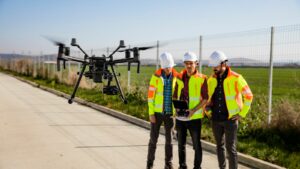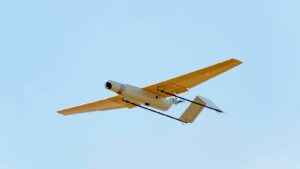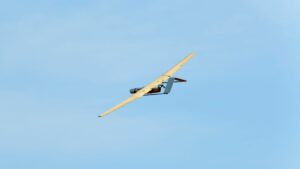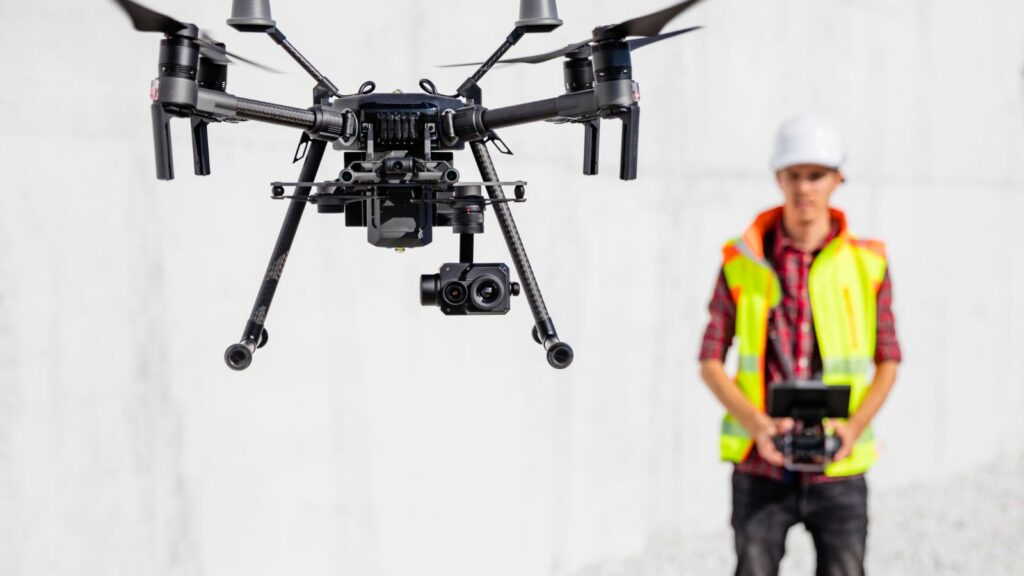Unmanned Aerial Vehicles (UAVs), commonly known as drones, have become a significant part of our lives. But have you ever wondered who’s behind this groundbreaking technology? This article will delve into the world of the UAV inventor, the genius who revolutionized aerial technology.
UAV Inventor
Enter Abraham Karem, hailed as the father of the modern Unmanned Aerial Vehicle (UAV). An extraordinary innovator, Karem’s designs revolutionized the possibilities for aerial technology, shaping the drone industry as we know it today.
 Regarded as the genius behind the Predator drone, one of the most widely used military drones, Abraham Karem truly began an era of revolution in UAVs. Born in Baghdad in 1937 and emigrated to Israel at the age of 14, Karem held an aeronautical engineering degree and experience as an Israeli Air Force engineer. He was the inventor of the first drone to stay aloft for about 56 hours, a remarkable achievement considering UAVs in the late ’70s barely made it past two hours. His ground-breaking invention led to the founding of Leading Systems Inc., in 1977, a drone-manufacturing company.
Regarded as the genius behind the Predator drone, one of the most widely used military drones, Abraham Karem truly began an era of revolution in UAVs. Born in Baghdad in 1937 and emigrated to Israel at the age of 14, Karem held an aeronautical engineering degree and experience as an Israeli Air Force engineer. He was the inventor of the first drone to stay aloft for about 56 hours, a remarkable achievement considering UAVs in the late ’70s barely made it past two hours. His ground-breaking invention led to the founding of Leading Systems Inc., in 1977, a drone-manufacturing company.
Karem, through his work, transformed the drone industry significantly. The implementation of his ‘Stamina’ concept – incorporating lightweight and high aerodynamic efficiency in drones – transformed them from mere novelties into functional, practical tools. The Predator drone, a symbol of Karem’s innovation, represents a significant leap, allowing capabilities such as extended flight times and live video feed. These valuable features have seen it become pivotal in military counters, and its technology is widespread in various civilian drones. It’s safe to say that Abraham Karem’s contributions will continue to shape the UAV industry’s future.
The Future of UAVs
Anticipated Technological Advances
 Progress in UAV technologies is projected to align with general trends in digital innovation. Enhanced autonomy forms a staple of these advances, with AI integration playing a fundamental role. Artificial Intelligence, particularly machine learning, enables drones to become more independent as they become capable of recognizing patterns, teaching themselves, and making decisions.
Progress in UAV technologies is projected to align with general trends in digital innovation. Enhanced autonomy forms a staple of these advances, with AI integration playing a fundamental role. Artificial Intelligence, particularly machine learning, enables drones to become more independent as they become capable of recognizing patterns, teaching themselves, and making decisions.
Other advancements include the use of swarm technology, whereby several UAVs coordinate to complete a task. This technology enhances efficiency and productivity, symbolizing a critical part of the future of UAVs. Furthermore, improvements in battery technology, notably with lithium-sulfur cells, offer more remarkable endurance capacities, augmenting UAVs’ flight time.
Also, next-generation materials will feature in the UAV inventor of the future. With benefits from weight reduction to strength enhancement, these materials cushion the UAVs against challenging atmospheric conditions.
Potential Future Applications of UAVs
The potential applications for UAVs stretch beyond their current usage, given their remarkable adaptability. Environmental conservation stands as a notable beneficiary of this adaptability, as UAVs can monitor wildlife populations, reducing the threat of poaching. Additionally, they might assess the health of forests and provide data on climate change impacts.
UAVs also stand to revolutionize the medical field by delivering medical supplies, particularly in remote and underserved regions. Similarly, they may transport organs for transplants, drastically reducing transport time and potentially saving lives.
 Moreover, UAVs could provide superior internet coverage through communication UAVs. In remote and rural areas, drones equipped with network technology might offer people access to the internet, bridging the digital divide.
Moreover, UAVs could provide superior internet coverage through communication UAVs. In remote and rural areas, drones equipped with network technology might offer people access to the internet, bridging the digital divide.
Furthermore, in the realm of entertainment and sports, UAVs may offer innovative experiences. For instance, drones could capture new angles in live sports events, providing viewers with immersive experiences.
To reiterate, the future of UAVs exceeds imagination as their adaptability shines in unearthing more breakthrough applications, that scale from environmental conservation to entertainment. And so, it’s safe to aver that the coming decades hold immense promise for this transformative technology.
Reshaping Industries
Abraham Karem’s pioneering work as UAV inventor technology has truly revolutionized our world. His innovative approach, coupled with his relentless determination, has transformed drones from mere novelties into practical tools that are reshaping industries. Karem’s ‘Stamina’ concept and the development of the Predator drone are testament to his profound impact on both military and civilian drone technology.



